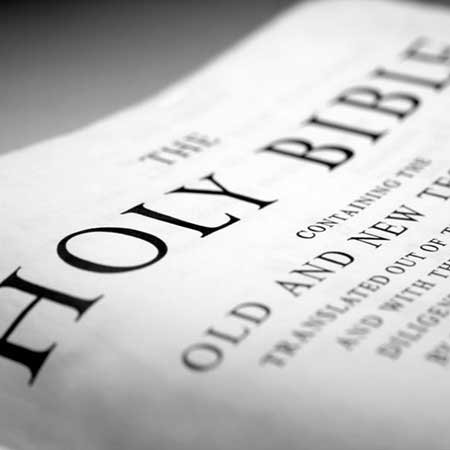Interpretations of the Kingdom of God

 Interpretations of the Kingdom of God
Interpretations of the Kingdom of God
There have been many interpretations of the Kingdom of God found in recent history.
Here are a few:
The Kingdom is a present reality.
This was taught by C. H. Dodd, who believed that the Kingdom is an earthly place of righteousness, peace, joy – qualities that God bestows on those who submit to the Rule of the Spirit. It is based on Scriptures like Matthew 12:28; Romans 14:17; and Colossians 1:13. This theory holds that the Kingdom of God was realized fully in the mission and ministry of Jesus. Hence it is usually named ‘Realized Eschatology.’ He minimised the eschatological component of the Kingdom to the extent of annihilating it altogether.
The Kingdom is a place of future blessing
Johannes Weis published his ‘The Preaching of Jesus about the Kingdom of God,’ in 1892, where he claimed that the Kingdom of God was altogether future and eschatalogical.
Albert Schweitzer, caught on to this idea, among others, relegated the Kingdom to the future, as an inheritance bestowed upon God’s people at the Second Coming. (1 Cor. 15:50; Matt. 8:11; 2 Pet. 1:11; Matt. 25:34). The old order of human history will be superseded by a new heavenly order of existence which the Bible calls the Kingdom of God.
Schweitzer’s interpretations broke down when he suggested that Jesus expected the end to come imminently and that his ethical teachings were only for the interim period before the end of the world, not for all men and societies. As the Kingdom did not come Schweitzer concluded that Jesus was no more than a deluded first-century apocalyiptist.
Kingdom of God refers to a subjective realm.
Adolph Von Harnack championed this idea of an inner and spiritual redemptive benefit (Rom. 14:17), expressed by a new birth (John 3:3). It is an inward power which affects the human soul and lays hold of it. Personal religious experience is the primary thought. His ideas were presented in his book, ‘What is Christianity’. This liberal view is often embraced my liberal scholars who believe Jesus’ main religion emphasised The Fatherhood of God, the bbrotherhood of man, the infinite value of the individual and the ethic of love.
The Kingdom of God causes radical social change, without violence
Leo Tolstoy, in his book ‘The Kingdom of God Is Within You’, advocated the idea that the Kingdom of God means restoring all social problems such as poverty, social injustice, and other forms of inequalities and oppressions. He pioneered a radical, non-violent, Christian approach to social change against inequality in society and government. Interestingly, Mahatma Gandi of India adopted Tolstoy’s ideas in 1894 and applied them in his Hindu culture.
Tolstoy’s theology had a profound influence on many, including the young Martin Luther King, Jr.
The Kingdom of God refers to re-establishment of justice in the world
‘Liberation Theology’, though not Evangelically Christian, propagated the elimination of exploitation and poverty that prevent the poor from being fully human. Its founder, was a Peruvian philosopher, Catholic theologian, and Dominican priest named Gustavo Gutierrez whose intentions were to improve the material conditions of the impoverished, who numbered around 62% of the population in South America in the 1970’s.
It emphasised ‘social concern for the poor and political liberation for oppressed peoples.’ Unfortunately, its initial precepts became tainted with Marxist ideals, which could lead to justifiable violence. American secular critics argued that “liberation theology… would install Communism in the name of Christianity” and encourage acts of terrorism. Pope, John Paul II, was critical of liberation theology’s borrowings from Marxism and its implied endorsement of violence.
Today, the movement has moved away from violence as a means for social change, by revolution, and they argue for a deepened democracy that is aware of ‘the preferential option for the poor’.
The Kingdom of God refers to the Church.
The great Augustine is credited with this idea and his theology still prevails in many groups today. He proposed that as the Church grows the Kingdom grows and is extended into the world. As the Church takes the gospel into all the world, it extends the Kingdom, because the Church embodies the Kingdom.
The Kingdom of God and the Kingdom of heaven are two different things
Twentieth century dispensationalists distinguished sharply between the Kingdom of Heaven and the Kingdom of God, in the same way that they distinguished sharply between Israel and the church. They reckoned that the Kingdom of Heaven was the earthly theocratic Kingdom promised to Israel. However, because of the Jews rejection of God’s offer, it was passed on to all who would believe, with no racial restrictions, making the Kingdom of Heaven the sphere of Christian profession. This comprises the church between the two advents of Jesus.
This Kingdom of Heaven will reach it’s climax at the second coming of Christ, when the Jewish nation will have been re-instated and joined with Gentile Christians who will join with Christ in his millennium reign on a restored earth.
The Kingdom of God refers to his general rule over the universe.
This is just a very brief description of dispensationalism and modern dispensationalists may disagree with it. It should be noted that the Traditional Dispensationalism described here has, for many, been superseded by Progressive Dispensationalism which has substantially revised their views, stating that kingdom of God and kingdom of heaven refer to the same thing.
Other contemporary ideas
1) The Kingdom of God is the church. Matt 16:18-19.
2) The Kingdom of God is a future experience. ICor15:50, Matt 8:11, 2 Pet 1:11, Matt 25:34.
3) The Kingdom of God is a present reality. Rom 14:17, Col 1:3.
4) The Kingdom of God is a subjective spiritual experience. John 3:3.
5) The Kingdom of God is ‘politically Messianic’. Acts 1:6
6) The Kingdom of God is apocalyptic. ie, seen is terms of a future age of God’s rule superseding the present age which is dominated by Satan and the evil angels.
7) The Kingdom has to do with governments and nations of the world Rev. 11:15
8) The Kingdom of God has to do with being politically or socially active.
Although there are elements of truth in many of these interpretations, none of them capture the comprehensiveness and completeness of the Kingdom presented in the Bible.






